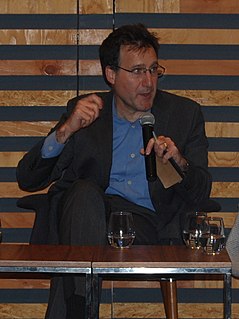A Quote by Amy Lockwood
Polak, a psychiatrist, has applied a behavioral and anthropological approach to alleviating poverty, developed by studying people in their natural surroundings. He argues that there are three mythic solutions to poverty eradication: donations, national economic growth, and big businesses. Instead, he advocates helping the poor earn money through their own efforts of developing low-cost tools that are effective and profitable.
Quote Topics
Applied
Approach
Behavioral
Big
Big Business
Businesses
Cost
Developed
Developing
Donations
Earn
Economic
Economic Growth
Effective
Efforts
Growth
Helping
Instead
Low
Low-Cost
Money
Mythic
National
Natural
Own
People
Poor
Poverty
Profitable
Psychiatrist
Solutions
Solutions To Poverty
Studying
Surroundings
Three
Through
Tools
Related Quotes
A considerable proportion of the developed world's prosperity rests on paying the lowest possible prices for the poor countries' primary products and on exporting high-cost capital and finished goods to those countries. Continuation of this kind of prosperity requires continuation of the relative gap between developed and underdeveloped countries - it means keeping poor people poor. Increasingly, the impoverished masses are understanding that the prosperity of the developed countries and of the privileged minorities in their own countries is founded on their poverty.
We need to create jobs for 300,000 youth graduating from high school in the next three years. We need to produce growth so we can have an economic system that can turn our natural wealth into a productive system. We need services, because poverty reduction cannot take place without effective citizenship.
Inevitably, people tell me that poor folks are lazy or unintelligent, that they are somehow deserving of their poverty. However, if you begin to look at the sociological literature on poverty, a more complex picture emerges. Poverty and unemployment are part and parcel of our economic order. Without them, capitalism would cease to function effectively, and in order to continue to function, the system itself must produce poverty and an army of underemployed or unemployed people.
Given the relativity concept, poverty cannot be eliminated. Indeed, an economic upturn with a broad improvement in household income does not guarantee a decrease in the size of the poor population, especially when the income growth of households below the poverty line is less promising than the overall.
Government programs aim at getting money for poor people. Our hope was that knowledge would in the long run be more useful, provide more money, and eventually strike at the system-causes of poverty. Government believes that poverty is just a lack of money. We felt, and continue to feel, that poverty is actually a lack of skill, and a lack of the self-esteem that comes with being able to take some part of one's life into one's own hands and work with others towards shared-call them social-goals.
Saving our planet, lifting people out of poverty, advancing economic growth... these are one and the same fight. We must connect the dots between climate change, water scarcity, energy shortages, global health, food security and women's empowerment. Solutions to one problem must be solutions for all.
Welfare mostly subsidizes people in poverty, helping few escape from it. In their hearts, most people who are poor would like to be rich, or at least self-sustaining, but this president never talks about how they might achieve that goal. Instead, he criticizes those who made the right choices and now enjoy the fruits of their labor. Rather than use successful people as examples for the poor to follow, the president seeks to punish the rich with higher taxes and more regulations on their businesses.




































